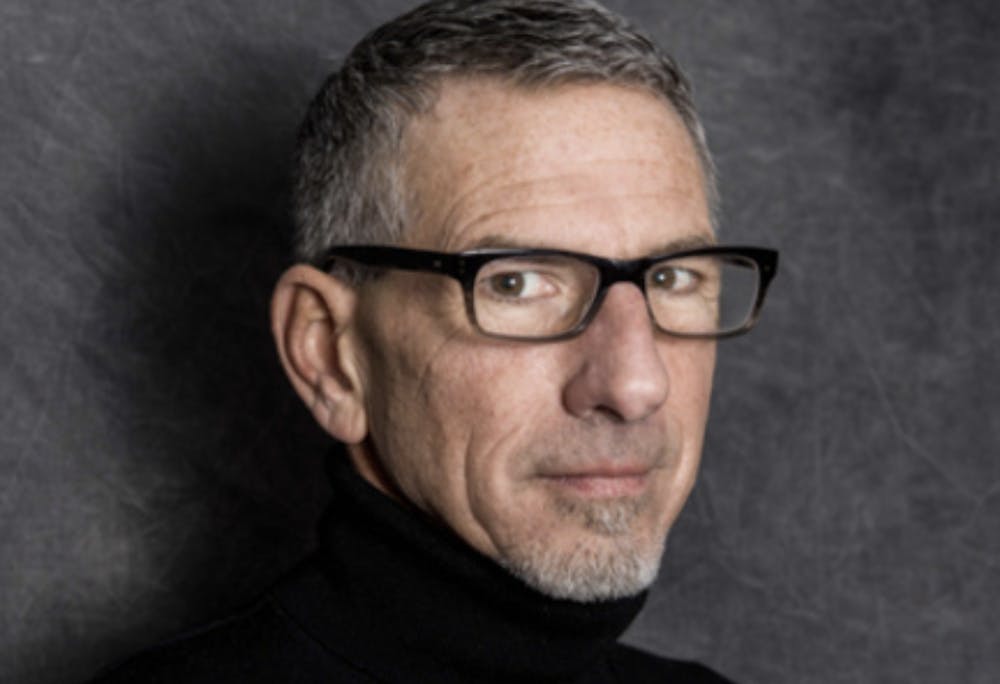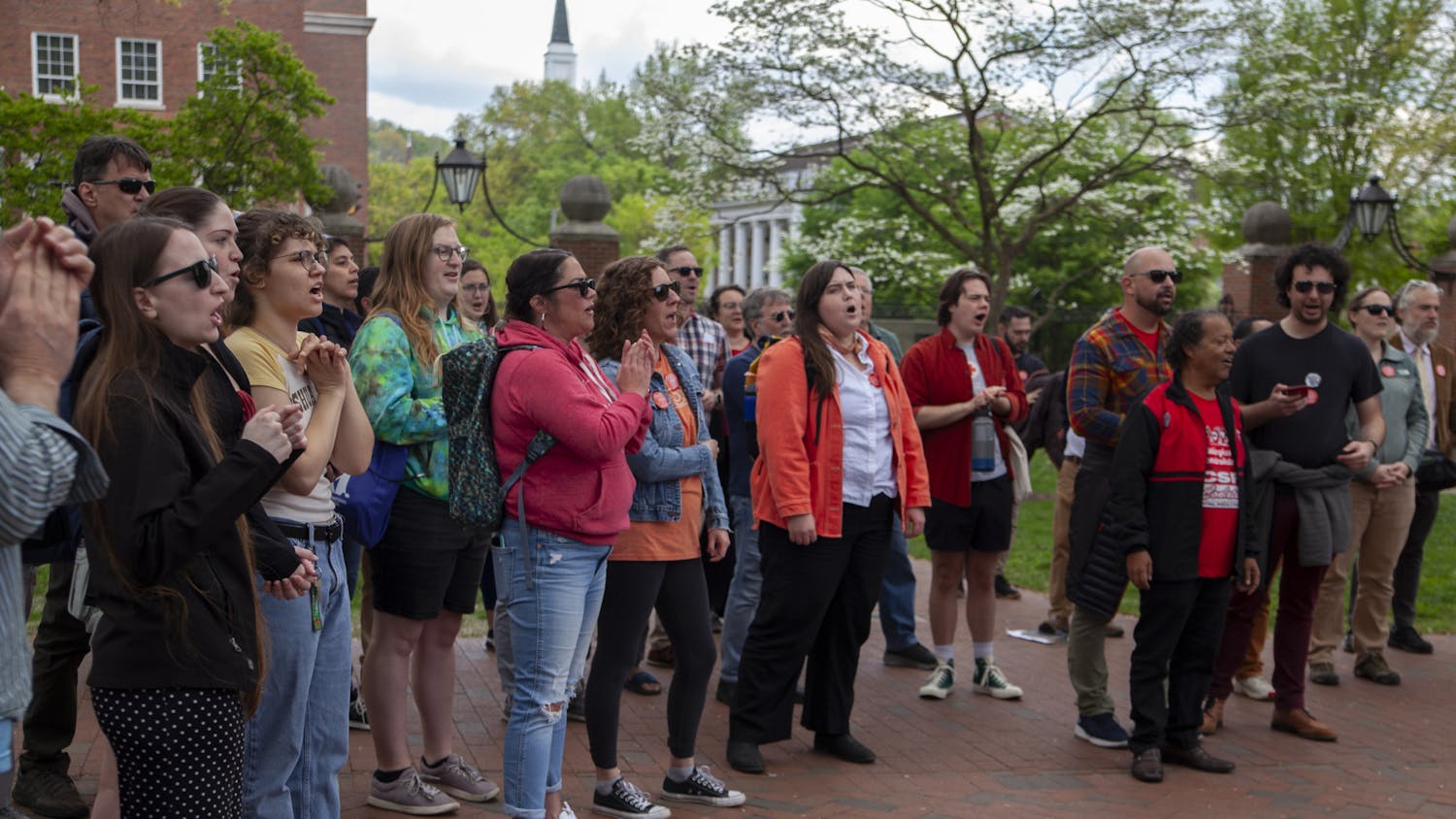Sept. 17 marked Constitution Day, a day dedicated to observing the adoption of the United States Constitution and its impacts on modern-day life. On Tuesday, Sept. 28, Ohio University will honor Constitution Day through an event titled “Free Press, Free People: The Role of Journalists in Wrongful Conviction Cases.”
The free event is co-sponsored by OU’s Provost Office and the Ohio Innocence Project, or OIP, at the University of Cincinnati College of Law and is hosted by OU’s Center for Law, Justice and Culture, or CLJC. The event will be held at the Athena Cinema, 20 S. Court St.
Pierce Reed, who graduated from OU in ‘86, will moderate the event. Reed, a program director at the OIP, said there has been a longstanding connection between the OIP and OU, which helped to establish this event.
“OU has been the home to one of the most robust and diverse chapters that we have,” Reed said. “But this event in particular taps into both the work that we're already doing, as well as reaching out to audiences that may not be familiar with programming and arts and sciences. And one of the things at OU is that it has such a great journalism school and communications programs that train so many people to go into work related to the media. And for people working in wrongful conviction, the media has become one of the greatest allies that we have. And we're featuring one example of that, through this program.”
The program will feature a discussion between Mike Wagner, a reporter for the Columbus Dispatch, and Robert McClendon, the first person exonerated through the efforts made by Wagner’s 2008 project, titled Test of Conviction. Wagner’s report delved into the flawed DNA systems present within the prison infrastructure that kept innocent people behind bars. Through Wagner’s exposure, seven men were exonerated.
Wagner, who started at the Columbus Dispatch in 2006, described how the idea for the project was generated.
“In 2006, the state had passed the law that allowed inmates to apply for a DNA test, but the law was too restrictive in who qualified,” Wagner said. “So I pitched to the editors that we do this big project where we try to figure out a way to identify cases and pay for testing and then I contacted the Innocence Project and we found a lab in Cincinnati that was willing to do free testing for us.”
Wagner said he and his partner spent months building 314 case files – each representing a person who had applied for a DNA test. Through their investigation, Wagner said it was apparent that there were significant flaws in the way that the cases were being treated.
“We found early on that these guys were being railroaded by prosecutors and judges, they weren't giving a fair chance to get them testing, despite the fact they had evidence,” Wagner said. “And sadly, the evidence had been lost or destroyed in a bunch of cases as well. So as part of the project, we selected 30 cases for the free testing. We published a six-page series in January of 2008 and I didn't even write another story for an entire year, which is very rare ... but the story was so important.”
Several months after the project’s publication, the results of the testing were announced.
“We had our first test result and it showed that Robert McClendon was innocent after serving 18 years for a rape he didn't commit,” Wagner said. “(Overall) there were seven men that were freed and four men were proven guilty.”
Ever since the conclusion of the project, Wagner and McClendon have remained friends. At Tuesday’s event, the two will sit down to discuss their respective experiences and how the role of the media ultimately impacted the results of the case.
Wagner stressed his gratitude for this project and the relationship that it allowed him to build with McClendon.
“This is probably the project that I'll remember the most and had the most effect,” Wagner said. “There's no award or no anything that can replace that feeling. And that you helped give somebody their life back that was taken from them.”
The event will allow for both of the men to share their stories, and there will also be a specific time allotted for students to interact and ask questions, which, Reed said, is a very special opportunity.
“It's really powerful for people to have the opportunity to meet a professional like Mike, but also to have the opportunity to talk to someone like Robert who is just an amazing human being,” Reed said. “And as diverse as our clients are, they all show great grace and forgiveness in the way they look at all of those. (Robert will) talk pretty passionately and is very generous with his time. So as many people who want to ask questions, they're welcome to ask during that period.”
Julia White, professor of political science and women’s, gender and sexuality studies at OU, is the interim director of CLJC. White said the event is significant in that it emphasizes the essential role of journalism within society.
“These are difficult times to be in politics but perhaps even more difficult times to be in journalism,” White said in an email. “We have become accustomed to hearing that the media is the problem. I think this event highlights the critical role of a free press and investigative journalism in holding our institutions – even institutions like courts – accountable.”
This accountability, Reed said, has gained relevance over the last several years, as the standards of journalism have been repeatedly questioned and slandered, often through political means. Through this distrust with the media, Reed said it creates a dangerous domino effect.
“Over the past five years or so, there have been so many attacks on the press and the media, where it's really had an impact that I think is terribly troubling, when you have elected leaders, including former presidents treating the media as if they're the enemy of the state,” Reed said. “That's so horrible for democracy. But we also see the impact of how it affects people's lives in very literal ways to the amount of misinformation and disinformation about COVID-19, for example. It’s heartbreaking because people have died because they no longer trusted the media in its reporting of the significance of something like the COVID virus.”
With this recent uptick in criticism of the media, Reed said this event is very important in that it amplifies the integral role that journalists occupy, one that can greatly affect governmental and societal systems.
“We’re trying to remind people that reporters are doing an incredible public service by the work they do,” Reed said. “And it literally can save people's lives. Those seven men would have likely died in prison despite their innocence if it wasn't for the help that we received from Mike's work and the way it got the system to respond in a way that the law didn't. It's profound when you think that media can have such an impact on a system or an institution like the judiciary. But I think sometimes it takes that extra attention that media provides and the impact of it is powerful.”
For journalists who may attend the event, Wagner hopes that they will recognize the potential that their career path offers them.
“Journalists now more than ever need to be inspired by what their power is, and what they're capable of doing,” Wagner said. “It was life-changing for me to know that we helped give someone their life back. And that kind of work is why I still like to be a reporter.”






